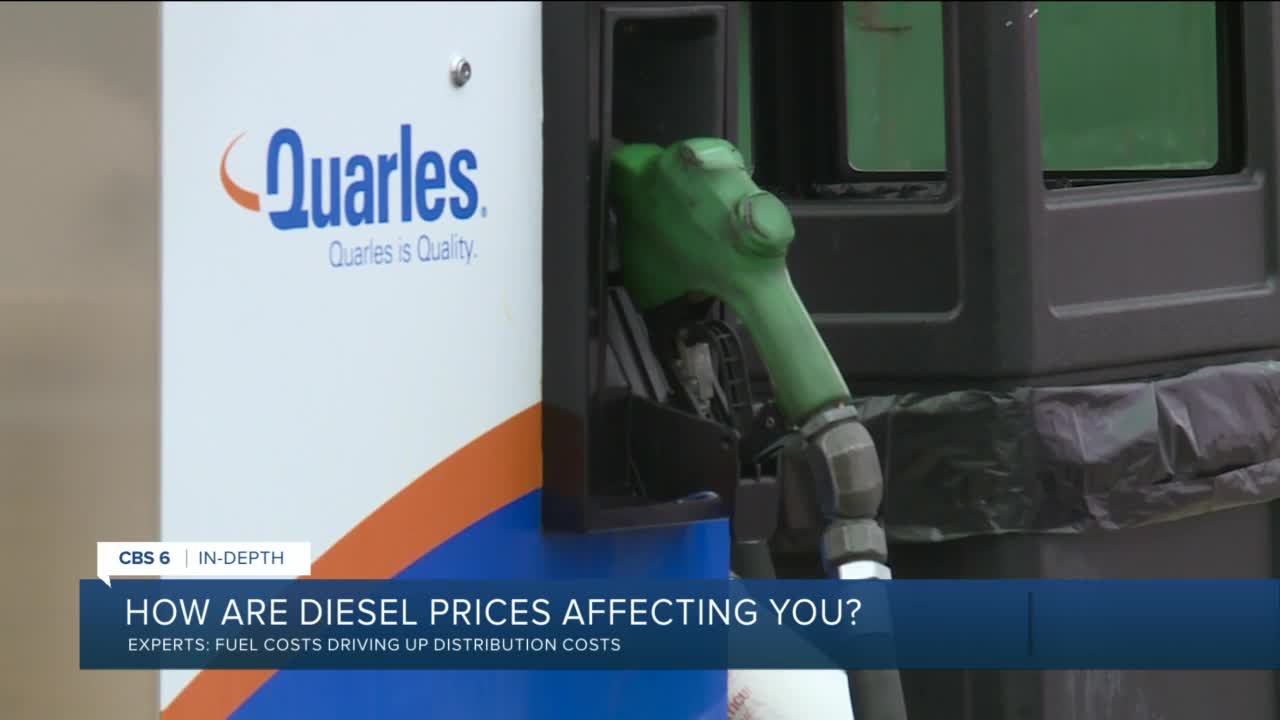RICHMOND, Va. -- While gas prices have reached historic levels over the past few days, diesel prices have as well.
Due to the key role that fuel plays in the trucking industry and the supply chain, these costs will likely be passed along to consumers.
According to Triple-A, the average cost for diesel fuel in Virginia reached a new record high on Thursday at $5.06, over a 14 cent increase from Wednesday.
"To put that in perspective, that's 82 cents higher than the average price of gas, $1.28 higher than it was a month ago," Dale Bennett, the president of the Virginia Trucking Association, said.
Bennett said fuel prices are just the latest hit in the industry since the pandemic drove up wages and insurance and equipment costs.
"That's four factors that are really increasing the pressure on our members to be able to do business and make some money while they're doing it," Bennett said. He added there are about 12,500 trucking companies in Virginia and around 43,500 Virginians are employed as drivers.
He said while these price increases impact the entire industry, smaller companies or owner-operators are hurt even more.
"Large trucking operations, you know, have the economies of scale to be able to deal with these increased costs. The small trucking operations that are in the sort of the spot market, they're really the ones that are really feeling this increased pressure," said Bennett. "And they're the bread and butter of our business."
Bennett said of all the trucking fleets in the United States, 97.4% have fewer than 20 trucks and 91.3% operate 6 trucks or less.
He said that fuel is the second-highest cost of operations. While companies try to minimize increases where they can, the fuel costs will be passed down the supply chain line that they are a part of.
"Virtually everything we use is transported back by truck at one point or another," Bennett said.
"Fuel costs go directly into distribution costs and distribution costs are a significant portion of total consumer prices," Dr. Jeff Smith, the chair of VCU's supply chain management and analytics department, said.
Dr. Smith adds that diesel and other fuels are used at other stages of production, adding even more costs.
The amount depends on the product, with things like electronics only needing it at the backend for shipping. However, it is needed more in things like food production, as farm equipment needs diesel for harvesting.
"So it costs them more, that goes into more raw material cost. And you've got distribution costs that are increasing from stage to stage to stage," Dr. Smith said.
Dr. Smith said while governments and companies are doing what they can to increase production to bring down prices, those will take time to have an impact. In the meantime, consumers will have to prepare for markups.
"We're going to have to bear higher prices and just start thinking about prioritizing what matters most," Dr. Smith said.
Smith added there is one impact of the COVID-19 pandemic that could serve as a silver lining for the diesel prices.
He said because some people are able to work from home and do not have to commute, that could help lower the demand for gasoline production and more crude oil could then be used for diesel production.
"I think that rough numbers are — of the crude oil that comes into, say, the U.S. — I think 49%, roughly, goes to gasoline and 15-to-20% goes to diesel," said Smith. "If we're using less gasoline, overall, maybe we can transition some of that and refine differently."





